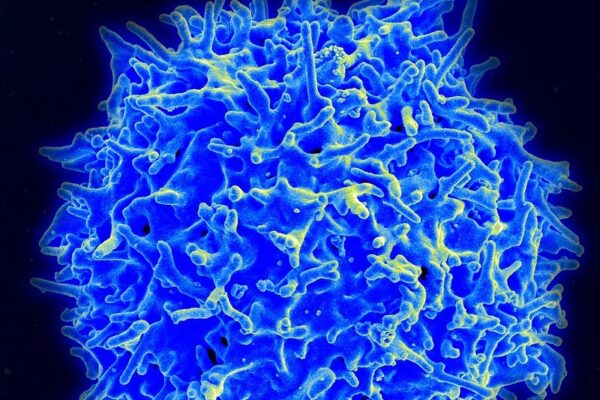
Cargo Therapeutics, a developer of cell therapies intended to overcome cancer mechanisms that lead to relapse, is stopping its lead program after a safety complication emerged in a clinical trial that the biotech had hoped could support regulatory approval.
With the discontinuation of the lead cell therapy candidate, firicabtagene autoleucel (firi-cel), San Carlos, California-based Cargo said it will also lay off about half of its staff. As of the end of the third quarter of 2024, Cargo reported having 170 full-time employees.
Firi-cel is an autologous cell therapy designed to target the cancer protein CD22, providing an alternative to currently available cell therapies that target CD19. Cancers escape CD19-targeting therapies by either losing or downregulating the expression of CD19 on the surface of tumor cells, leading to relapse. Firi-cel was being tested in a potentially pivotal Phase 2 trial enrolling patients with relapsed or refractory large B-cell lymphoma (LBCL) that had progressed following treatment with a CD19-targeting CAR T-treatment.
Firi-cell had some signs of efficacy in the mid-stage test. Cargo said data from 51 patients showed an overall response rate of 77% and a complete response rate of 43%. However, the durability of the complete response at three months was just 18%. Cargo also said “recent safety events” prompted an ad hoc analysis that found 18% of participants experienced toxic effects, including some that were classified as grade 4 or 5 serious adverse events. The complication, called immune effector cell-associated hemophagocytic lymphohistiocytosis-like syndrome (IEC-HS), is an excessive immune response that can lead to dysfunction of multiple organs. While neurotoxicity and cytokine release syndrome are known risks of CAR T-treatments, IEC-HS is emerging as another potentially life-threatening complication of this class of therapies.
Cargo said it will present an analysis of the firi-cel Phase 2 study at a future medical conference. In the company’s announcement after Wednesday’s market close, President and CEO Gina Chapman characterized the Phase 2 results as unexpected.
“Durability of complete response is an important clinical goal for LBCL patients who are [relapsed or refractory] to CD19 CAR T-cell therapy,” she said. “Combined with a higher-than-expected occurrence and severity of IEC-HS, the data generated so far does not meet our expectations of a competitive benefit-risk profile for patients in the context of available treatment options. Therefore, we believe it is in the best interest of both patients and shareholders to discontinue the study.”
Cargo said it will now focus on CRG-023, a CAR T-therapy designed to go after three targets simultaneously in order to prevent relapse. Earlier this month, Cargo announced the FDA had cleared the company’s investigational new drug application for the therapy. Enrollment in a Phase 1 dose-escalation study is expected to begin mid-year. The company will also continue research on allogeneic cell therapies.
To William Blair analyst Sami Corwin, firi-cel’s lack of durability could be because the study enrolled very sick patients who had already received treatment with CAR T-therapies. These patients may have had higher proportions of immune cells that have the effect of limiting the efficacy and persistence of cell therapies, she said in a Thursday research note. Corwin also expressed surprise at the high rate of IEC-HS, which was previously observed only for higher doses or with product made with different potency parameters. Corwin said CRG-023 and the allogeneic vector platform have the potential to create long-term value, but given their early stage of development, they are unlikely to generate meaningful clinical data in the next 12 months.
Cargo emerged in 2023, backed by $200 million in Series A financing. Firi-cel, known earlier in its development as CRG-022, was developed with a chimeric antigen receptor licensed from the National Cancer Institute. Months after announcing its Series A round, Cargo raised $218 million from an IPO priced at $15 per share.
Shares of Cargo closed Thursday at $3.39 apiece, down more than 74% from Wednesday’s closing price. As of the end of the third quarter of 2024, Cargo reported its cash position was $404.8 million, which it estimated would fund operations through 2026. With the discontinuation of firi-cel and the staff layoffs, Cargo said it expects its cash will last into mid-2028.










